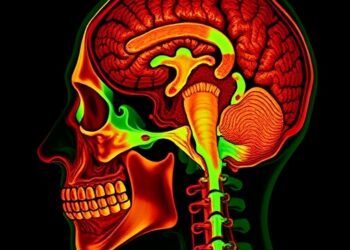In recent research published in JAMA Cardiology, the therapeutic efficacy of finerenone has been evaluated, providing crucial insights into its functionality in patients irrespective of their atrial fibrillation status. This comprehensive study sought to understand the diverse impacts of finerenone on patient outcomes, especially in those who may develop new-onset atrial fibrillation. Findings from the study revealed a significant association between new-onset atrial fibrillation and a marked increase in the risks of subsequent adverse health events, demonstrating the importance of closely monitoring these patients.
The implications of atrial fibrillation in relation to heart failure are multifaceted and critical. Atrial fibrillation, a common cardiac arrhythmia, can lead to various complications, including stroke and heart failure. The correlation between this condition and poorer prognosis underscores the necessity for effective interventions. Finerenone, a novel non-steroidal mineralocorticoid receptor antagonist, has gained attention for its ability to mitigate renal and cardiovascular outcomes in certain patient populations suffering from chronic kidney disease and heart failure with reduced ejection fraction.
In the context of this study, researchers posited that finerenone could potentially provide protective benefits against the heightened risks posed by atrial fibrillation. The study indicates that the drug’s efficacy was maintained across diverse subgroups, highlighting its role as a consistent therapeutic option for heart failure patients, regardless of their arrhythmic status. This finding is particularly empowering, as it suggests that clinicians may have an effective tool to manage heart failure complications while also addressing the challenges posed by atrial fibrillation.
Furthermore, the study magnifies the clinical significance of finerenone in light of escalating rates of cardiovascular diseases worldwide. With atrial fibrillation becoming a prevalent public health concern, the necessity for robust treatment modalities to enhance patient survival rates and quality of life becomes increasingly pressing. Finerenone stands out as it not only targets heart failure and chronic kidney disease but also seeks to reduce the complications arising from arrhythmias.
The analysis of the outcomes revealed critical insights regarding the dynamic interplay between finerenone and various risk factors associated with cardiovascular disorders. Patients with new-onset atrial fibrillation require vigilant management because their risk profiles differ substantially from those without this condition. The researchers noted that stratifying patients based on their arrhythmic status could enhance treatment precision, optimizing the use of finerenone and possibly extending its benefits to a broader demographic.
Moreover, the study advocates for a more nuanced understanding of drug interactions and patient-specific factors that can influence treatment responses. By comprehensively evaluating the relationship between finerenone and patient outcomes in the context of atrial fibrillation, clinicians can integrate this knowledge into their practice, tailoring interventions to meet individual patient needs effectively.
In light of these findings, healthcare providers are encouraged to include discussions surrounding atrial fibrillation when formulating treatment plans for patients with heart failure. The study has spurred further interest in exploring additional pharmacological options that may complement finerenone, ultimately striving for an interdisciplinary approach to cardiovascular care that encompasses both prevention and management of atrial fibrillation.
As we reflect on the study’s outcomes, the fundamental need for further inquiry into the mechanisms by which finerenone exerts its effects becomes evident. Future research could delineate the pathways involved and explore how they might intersect with other therapeutic agents. This could rationalize a multifactorial strategy in addressing not only heart failure but also the urgent need for effective atrial fibrillation management.
In conclusion, the research on finerenone presents an opportunity to enhance understanding and treatment of heart failure in the presence of atrial fibrillation. Such comprehensive studies foster knowledge that is vital not only for clinicians but also for patients navigating their cardiovascular health journeys. Insights gained from this study may reshape clinical guidelines, leading to improved outcomes for those at risk of or suffering from atrial fibrillation as part of their overall heart failure management strategy.
As more data emerge to illuminate the intricate relationships between cardiovascular health conditions, the medical community must remain vigilant and proactive in leveraging these insights to foster advancements in patient care.
The presentation of this study at the American College of Cardiology’s Annual Scientific Session further emphasizes its significance in the realm of cardiovascular research. The ongoing dialogue among researchers, clinicians, and healthcare professionals surrounding these critical findings serves as an impetus for continued exploration and innovation in cardiology.
In a healthcare landscape that constantly evolves, the potential applications of finerenone offer hope for enhanced quality of life in patients grappling with complex cardiovascular conditions, ultimately underscoring the value of targeted therapeutic strategies.
With the convergence of emerging data and advanced clinical practices, the future appears promising for the management of atrial fibrillation and associated cardiovascular disorders, heralding an era of precision medicine that prioritizes individualized patient care.
Subject of Research: Efficacy of finerenone in patients with heart failure and atrial fibrillation
Article Title: Efficacy of Finerenone Consistent Regardless of Atrial Fibrillation Status
News Publication Date: October 2023
Web References: N/A
References: N/A
Image Credits: N/A
Keywords: Atrial Fibrillation, Heart Failure, Finerenone, Cardiovascular Disorders, Chronic Kidney Disease, Mineralocorticoid Receptor Antagonist, Cardiac Arrhythmias, Risk Factors, Medical Treatments, Drug Therapy




